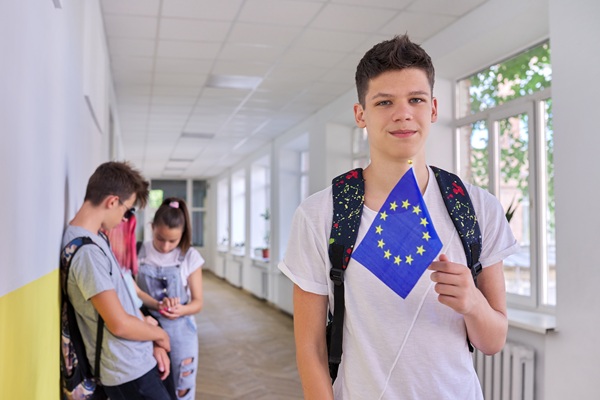
Empowering active citizenship in eTwinning Schools

eTwinning Schools empower pupils to become agents of change from an early age by involving them in school decisions and giving them opportunities to have their say and exercise democracy.
The eTwinning School mission makes it clear that pupils have an active role to play in the development of an eTwinning School. They promote eTwinning to their teachers and parents, and act as drivers of innovation in pedagogy and technology.
A truly democratic experience
Active citizenship requires commitment, structure and purpose. eTwinning Schools encourage pupils to take active roles in their own learning and school life.
Pupils can have a say in and impact on their school’s decision-making as well as its daily life. For example, by:
- selecting the topic for an eTwinning project;
- managing budgets for events or excursions;
- participating in drafting school regulations.
These experiences help pupils to develop decision-making skills and a deeper understanding of rules and policies, but also gives them a sense of ownership in their school communities, so they can encourage other pupils to engage actively as responsible citizens.
Connecting with peers from different countries
eTwinning participants work together across borders through collaborative projects, and gain insights into different cultures, school systems and perspectives. eTwinning Schools, in particular, embed these opportunities into their school cultures, and encourage pupils to lead projects and actively engage in international collaboration.
These experiences promote a sense of unity and shared purpose, helping pupils see themselves as active citizens who are part of a larger global community.
Applications are now open for the eTwinning School label
Join us in building schools where pupils are empowered to shape the future.
If your school is eligible, you will have received an email informing you about the procedure. The application must be submitted by 24 February 2025 at 23:59.
Additional information
-
Education type:School Education
-
Target audience:TeacherStudent TeacherHead Teacher / PrincipalPedagogical AdviserTeacher Educator
-
Target audience ISCED:Primary education (ISCED 1)Lower secondary education (ISCED 2)
